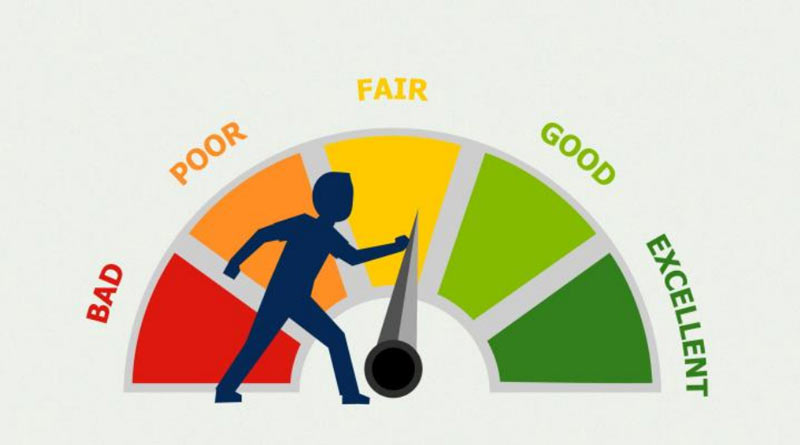Are you considering a home purchase shortly? It can be a daunting yet incredibly exciting experience. An important step in this process is obtaining a mortgage pre-approval. This means that your prospective lender has evaluated your finances and offered to lend you money based on their criteria.
With some smart financial planning, however, there are ways to increase your mortgage preapproval amount - giving you more buying power when it comes time to make an offer! Read on for our top tips on maximizing your chances of increasing your mortgage preapproval amount, or get started now with a free quote from one of our lenders.
What is a mortgage pre-approval
A mortgage preapproval evaluates a borrower’s financial situation and credit history by a lender. The lender will then estimate how much they will lend the borrower for a home purchase. It is important to note that this amount is not guaranteed, as additional requirements or qualifications may be needed before you can officially qualify for the loan.
How long is a preapproval letter valid for
Typically, preapproval letters are valid for 60-90 days, depending on the lender. After this period, you must submit a new application for preapproval and go through the process again. Stay in touch with your lender and ensure you have the most up-to-date information.
To Improve Your Preapproval Loan Amount, Here Are a Few Steps
Check Your Credit Score and Improve It
A higher credit score can lower your interest rate, translating to higher loan amounts. So, checking your credit score before applying for a loan is important. To get an accurate picture of your credit score, you should obtain a report from at least one of the three major credit bureaus: Equifax, Experian, and TransUnion. Check for any incorrect information in the report and dispute any errors that might lower your score.
If it turns out that your score is lower than you had anticipated, don’t despair. You can improve credit scores over time by promptly paying debts and other obligations. Paying more than the minimum due when possible will help you pay off debt faster. Another option is consolidating existing debt into one loan with a lower interest rate.
Pay Off Debt
If you want to get a bigger loan, pay down existing debt. This improves your credit score and means that more of the money you’re borrowing from the lender goes directly towards purchasing your home. Try to pay off any high-interest debts such as credit cards first since they tend to have the highest impact on your credit score.
Save More Money for a Down Payment
Saving more money for a down payment can also increase the amount of loan you’re eligible for. Generally, mortgagors prefer larger down payments since it is less likely that you will default on your loan. A larger down payment also means you’ll have less debt overall, improving your chances of getting a loan with better terms.
Get A Co-Signer
If you need help qualifying for the loans on your own, think about getting a co-signer with stronger credit than you. The likelihood that you will be approved for a loan and the loan amount may rise if you have a co-signer with strong credit.
Get A Second Job
If you have existing debt or need to save more money for a down payment, consider getting a second job. Working extra hours now can help you pay down any existing debt faster and save more money for your down payment. Additional income can make you look better to the lender, increasing your chances of getting a larger loan.
Consider A Shorter Loan Term
If you can make larger monthly payments, consider a shorter loan term. Shorter terms usually require a higher interest rate but translate into bigger loan amounts because the lender takes less risk. If you can afford the higher payments, this could be an option that will help you get a bigger loan.
Refinance Your Existing Loans
If you already have existing loans, consider refinancing them to get lower interest rates and reduce your monthly payments. This could free up more money for a down payment and also help improve your credit score over time. Just ensure that the cost of refinancing isn’t more than the money you’ll save in the long run.
Look for Special Programs
There are numerous loan programs out there that can help you get a bigger loan amount. These programs, such as FHA and VA loans, may offer lower interest rates or require smaller down payments. Do some research to see which programs you may qualify for and how they can help you get a bigger loan.
Shop Around
Different lenders offer different rates, so it pays to shop around and compare offers from several lenders. Getting quotes from multiple lenders will help you find the best deal possible and increase your chances of getting the biggest loan amount available.
Work With a Professional
Consider working with a professional mortgage broker or financial advisor to get the biggest loan possible. They can help you navigate the process and get the best deal available. A professional can also point out potential pitfalls and provide tips on maximizing your chances of getting a bigger loan.
How much will I be preapproved for
Your preapproval amount will depend on your credit score, income, debt-to-income ratio, and other financial obligations. Generally speaking, the higher your credit score is, and the more money you have saved for a down payment, the more likely you will get preapproved for a higher loan amount. Lenders may also look at your current debts, such as car loans and student loan payments when determining how much you are preapproved for.
Most lenders will require a full financial assessment to estimate the preapproval amount. This includes submitting your personal information, such as your address and Social Security number, along with the relevant documents to prove your income and assets. The lender will then compare your information to their criteria and offer a preapproval amount based on their assessment.
Your preapproval loan amount may also be affected by location, property type, and market conditions. Working with an experienced lender can help you navigate the process and get the best deal.
FAQs
Q: What documents do I need for mortgage preapproval?
A: Generally, you'll need to submit your personal information, such as your address and Social Security number, along with any relevant documents that prove your income and assets. This could include tax returns, pay stubs, bank statements, and other financial information.
Q: How is the preapproval amount determined?
A: The lender will consider several factors, such as your credit score, income, debt-to-income ratio, and other financial obligations, to determine your preapproval amount. Generally speaking, the higher your credit score is, and the more money you have saved for a down payment, the more likely you will get preapproved for a higher loan amount.
Q: Can my preapproval amount change?
A: Your preapproval amount can change depending on market conditions and the type of property you want to purchase. It’s important to stay in touch with your lender throughout the process to be aware of any changes in the preapproval amount.
Conclusion
Getting pre-approved for a mortgage can be intimidating, but understanding the basics and following these tips can help you maximize your loan amount. Whether getting a co-signer with good credit or looking into special programs, there are ways to increase your chances of getting a bigger loan. For more information on getting preapproved for a mortgage, consult a qualified lender or financial advisor. They can help you navigate the process and find the best loan for your needs.

What is a W-9 Form and Why You Need To Fill It Out

Detailed Discussion over Advantages and Disadvantages of Capitalization-Weighted Indexes

Should you Sign up for Life Insurance: Pros and Cons of American Heritage Life Insurance

Exploring the Best Insurance for Jet Ski: Pros and Cons of Top Providers

How Does Tax-Exempt Commercial Paper Work?

Developed Markets ETFs List

Accelerated Cost Recovery System (ACRS)

PBT: Calculation of Profit before Tax

Local Tax: What is Impact of Local Taxation?

Tax Efficiency: What is it and How to Calculate Tax Efficiency?

How to Read Double Top and Double Bottom Pattern?


